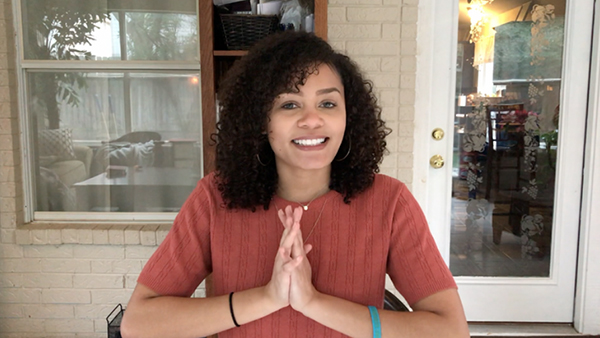Before her freshman year, marketing sophomore Julia Wezio made a YouTube video titled “How I got Into UT Austin Tips + Advice,” and today, Wezio’s video has over 33,000 views — more than any single video UT’s YouTube channel has made in about two years.
Current and former students who offer insight into UT admissions and campus life have become popular, unofficial faces of the University to prospective students on YouTube.
Marketing junior Lynette Adkins also reached thousands of views on videos covering topics such as the cost of attending UT and study abroad. Adkins said she is most proud of videos that discuss the experience she and her friends have had as black students at a predominantly white institution.
“The black population at UT is really only 5 percent right now, and so when you come and you tour and you’re researching the school, you don’t see a lot of what the black experience is really like,” Adkins said. “That’s the biggest thing I think I wanted to be able to touch on.” Kevin Martin, a former UT admissions counselor, started his channel “UT Admissions Guy” three years ago and offers application tips. He said in an email his advice is more unguarded than that offered by current admissions officers.
“I think one reason these informal or unofficial channels … get traction is people are tired of official speak,” Martin said in email. “People crave a ‘tell me how it really is’ approach that you’ll never get from even the most transparent institutions.”
Martin said his videos are viewed mainly by high schoolers but also by high school parents and transfer students.
Miguel Wasielewski, executive director of UT Admissions, said in an email the advice of current students is best when coupled with information provided by college representatives.
Wezio, who watched YouTube videos from other UT students before applying, said she also thinks her success was partially driven by the authenticity of her content.
“It’s not so much that UT is trying to hide something from you, but it’s more so that they have to use that official language,” Wezio said. “They have to keep a certain image. When you’re talking to a student who can share their unfiltered voice and be honest with you, I think they’re going to be more honest, obviously about the negative things, but a lot more honest with the positive things too.”





















